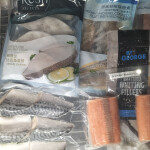Pawan Kumar is president of the Seafood Exporters Association of India.
In the SeafoodSource interview with CAL executive Dean Pinkert, a variety of false claims are repeated from a spurious report our association has refuted in thorough detail. As we demonstrated, CAL’s analysis relies on hopelessly vague allegations drawn from anonymous sources. It supplies zero credible evidence that our member companies employ unethical labor practices or unlawfully pollute the environments in which they operate.
In the interview, Pinkert says that employee “housing is guarded with workers having very limited ability to come and go as one pleases.” But, that’s blatantly false. Our members’ employees are free to come and go at any time, as confirmed by a documented log of all entry and exit at their facilities. Moreover, if any unlawful conditions did exist, these workers have a range of options for safely reporting them to governmental authorities. Notably, no such complaints have ever been lodged.
Pinkert also claims that “dangerous working conditions are ubiquitous in this industry.” That blanket generalization is clearly false. The Associated Press (AP) was forced to concede this point after we corrected them, writing that “the larger corporate processing facilities [operated by our members] appear to meet hygiene and labor standards…”
CAL’s pollution allegations are also deeply inaccurate. Pinkert says that “there is destruction of the essential mangrove and wetland habitats and polluting of the community water supplies.” What he conveniently leaves out is that mangrove areas are unsuitable for aquaculture because their soil is too acidic. Shrimp require clean water and beneficial algae to grow properly. Those facts incentivize farmers to carefully manage water quality – to protect the local environment, in other words.
Pinkert boasts that “CAL seeks to develop relationships with folks on the ground in the countries that we're looking at…” We found that self-congratulation unjustified since CAL didn’t bother to contact us or our members before, during, or after its supposedly in-depth investigation.
We would have happily shared all the facts outlined above with CAL had they reached out to us. Unfortunately, in an all-too-familiar pattern, Pinkert’s well-funded Western activists are attacking established and highly regulated Indian companies by deceptively conflating them with rogue actors. It’s a sleight-of-hand, condescendingly designed [attempt] to smear the entire Indian seafood industry so that parties with financial and ideological stakes in the issue can gain advantage.
Its victims are the workers and entrepreneurs of the world’s largest democracy – one with broad, strong, and modern labor laws with which we fully comply. Our companies do not engage in unsafe labor practices and have never been cited by regulators for any of the sorts of infractions described in the CAL report.
That’s why we refuse to sit still while CAL engages in a fundraising campaign driven by transparently unfounded disparagements. We invite all stakeholders to read our full analysis of this report and why it ought to be regarded with the highest skepticism.







